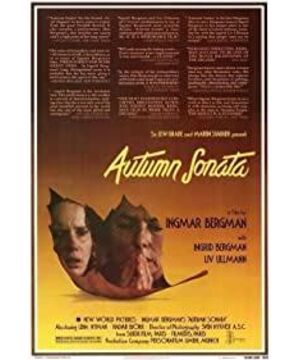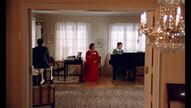"The ability to feel the truth depends on talent, and most people lack it, and that's fine." Anima and Animus, Oedipus and Electra. When we can't face the truth of where we are, when we run away every night and every day, fate will eventually drop its sword of Damocles: the sons and daughters who climbed out of purgatory, their ugliness will shock us , because that ugliness is made by us; its howls can tear our souls, because they say: not good.
Titled "Autumn Sonata," it seems brisk and cheerful, but Bergman doesn't handle it that way. The intention of music in the film is dark and hopeless, and it can even be expressed like this: "Music is sensual indulgence". "Autumn Sonata", what is played is chaos, and what is sung is despair. The music in the film has never been able to cleanse people's hearts: whether it's Bach, Chopin, or Beethoven, they are just cowardly emotions relying on real things to hide reality, and people use them to paralyze themselves, no different from drugs and sex; Furthermore, because people are irrational, yet rationally escape with music, music is even more inescapable. Therefore, Bergman has become a musical master, but emotional and rational dwarf.
Technically, voice-over is rarely used, and the sound and painting are accompanied by extremely monotonous and simple white noise, which makes contradictions and feelings cannot be concealed, and is presented directly in the audience's field of vision. I want to close the movie.
The first Bergman was really impressed by the power of his dispatch and the coldness of his emotions.
9.30 in Beijing
View more about Autumn Sonata reviews











